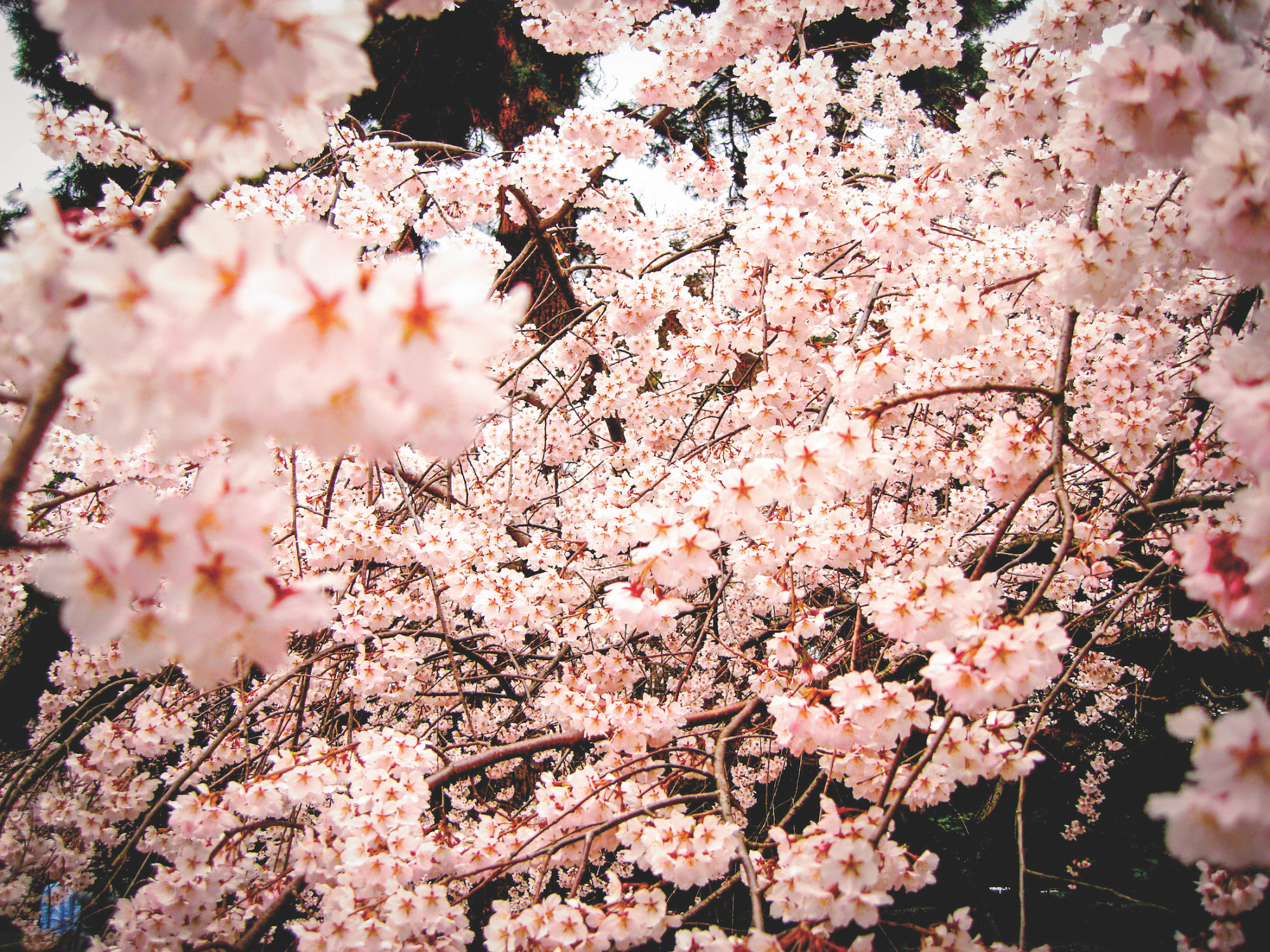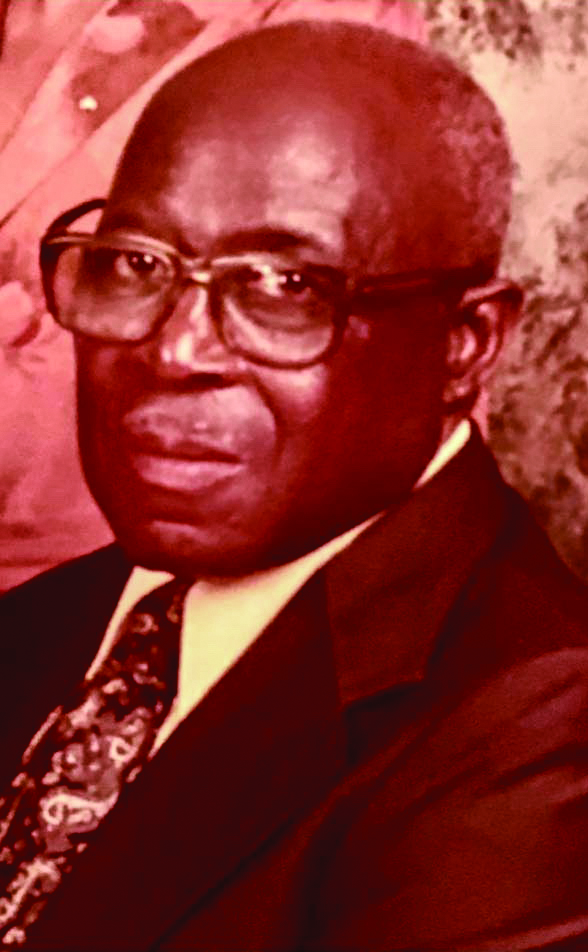
Photograph by Chie Gondovia Flickr, CCBY-NC 4.0 Deed
Editor’s Letter: Blooms, Greens, and Portals
By Danielle Amir Jackson
I had a great-uncle who walked to church every Sunday, even though he owned more than one car and a fleet of trucks for his weekday work. I called him Uncle. His head was bald: smooth and dark brown. He wore lace-up Stacy Adams that were newly polished and clutched a leather-bound Bible close to his chest. His suit, earth-toned and custom-made, showed flecks of mahogany when he sat in the deacons’ row. The sun shone through a stained-glass window, landing on his cheeks, which rose up into a grin whenever he caught my eye. He was dapper to me, regal and mighty. When our lives crossed paths, I was toddling and he was in his late seventies. He was my grandmother’s baby brother, the last of his siblings alive. “He survived them by years and years and years,” is how his daughter put it to me.
Uncle and my grandmother were among the youngest in a family that was extraordinary in size and generations—the way many were in those days. An extra body could after all mean extra strides toward a family’s goals. They had all been born in Coahoma and Sunflower counties: green, wet Delta land their parents had settled to farm as tenants. The family grew. The children kicked up the grass and dirt barefoot, learned to avoid cottonmouths and water hemlock. When they became adults, the intimacy between them never dimmed. How they kept each other’s secrets! Or showed up when one had trouble, or doubled over in laughter when huddling together in some quiet corner. And though they lived in separate households with their own children and spouses, it was easy to see they’d sprouted from some common source. They all took their coffee black. Didn’t have too much to say before that first morning cup. Knelt in prayer at least twice a day. Insisted dinner be served at the table. They were so clearly kin and kindred; one could also tell by their gardens.
Uncle kept many gardens across land he’d acquired after moving to the city as a young man. When he retired, he worked long hours in his own backyard, amidst the red maples, a rose bush, the tomato plants, a grapevine. There were collard greens (not to be plucked until there was the first hint of frost); a patch of watermelons; pods of English peas. Outside her home, his sister planted two rose bushes that bloomed red and white. Shrubs with hydrangea and honeysuckle. Peach trees in which my mother climbed, wild and unbound, flanked the house.
Soon after Uncle and his sister got settled in the city, they brought their elderly mother, who’d spent her first precious years of girlhood enslaved. She somehow found a brush of woods up a steep hill on a street lined with manufacturing plants. Tiny and a little bit infirm, she’d nonetheless climb the hill to forage for greens to use for an assortment of tinctures and salves, some she made for sale. I assume it was she, a retired farmer, who passed down a profound knowledge of sun, dirt, and wind, accumulated over many seasons. There had been good reasons to leave; no one liked to talk about Mississippi, not really. It is difficult to piece together what happened and to whom. But what had been kept was a shared belief in the beauty and peace that one could find, despite it all, outside. I must be honest and say it didn’t make sense until I found myself on my own, on a college campus with cherry blossoms and an amphitheater teeming with hanging vines under a wide-open sky that kept me enchanted for hours: just books, a blanket, and the breeze.
Later on, I would read in Incidents in the Life of a Slave Girl how Harriet Jacobs “concealed [herself] in a thicket of bushes” while fleeing from her captors. Then she hid in a swamp, and finally, a garret above her grandmother’s house. She remained in the garret for seven years. There she bored a hole one inch wide to watch her children passing by. It was her one source of sunlight, her one way to “enjoy the little whiff of air that floated in.” For Jacobs, the hole was a portal that let the outside in, but also kept her sane and tethered to her beloveds.
Jacobs’s autobiography details many harrowing memories of antebellum girlhood and forces me to sit with what my great-grandmother might have endured. The text is also drenched in a belief in the mystical, regenerative power of Earth. Jacobs’s “drooping hopes” of escape had come “to life again with the flowers,” she writes. She respects, even reveres the land: At the gravesite of her parents, she is awestruck by the sound of birds keeping watch. Jacobs’s desire for bodily freedom was inextricably linked with an abiding love for her progeny and our planet. I imagine my uncle’s weekly walk to church as another manifestation of that love, passed down—his way of keeping a connection with his lineage, with his own pure soul, with the Lord, and with this planet.

Fred Bell, the author’s uncle
OA editors began compiling stories for this edition, our Outside issue, late in 2023. Writers were already sending stories about how we must respect our planet, detailing the profound spirituality that can be practiced outdoors. We selected stories that speak to the rituals used to witness and maintain an open channel between humanity and all beings in the natural world. Christina Leo examines the traditions of Grand Isle, the sole remaining inhabited barrier island off the coast of Louisiana and home to the Grand Isle Tarpon Rodeo, now a catch-and-release festival of fishing to preserve life in its waters. Michael Adno visits a north Florida family steeped in the centuries-old ritual of summoning earthworms from the ground; Anna Venarchik describes a pilgrimage to the home of an Alabama-born visual artist who likely spent hours with James Baldwin at the writer’s country estate in St. Paul de Vence. Tauheed Rahim II recounts a lost eighty acres, and a found eighty-four-hundred-square-foot plot on Exchange Avenue in Memphis, that, for him and his children, became a “portal that provided protection, shelter, a shell.” The issue is fertile, alive, full of “bees and things and flowers.” The stories are best enjoyed outside.



